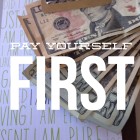So many things in your life are out of your control. The weather, the traffic, the sh*t that comes out of politicians mouths. If you get caught up in it all you could start to feel helpless. But here’s something I’ve learned from living in LA
- There’s always someone next to me in the coffee shop writing a screen play.
- I”m willing to spend hours in hellacious traffic to watch my friends perform.
If you go to enough comedy, poetry or story-telling shows, because your friends like to stand up in front of strangers and expose their most embarrassing neuroses with surprising insight, you’ll notice something:
Good shows begin strong and end strong.
Smart producers put their best acts at the begin and end of shows. This is a great gift to you, the audience. Especially with amateur shows, when you never know what you’re going to get.
A Strong Beginning sets the tone. You relax, feel hopeful, and engaged. It primes the pump. When you start laughing it’s easier to keep laughing.
A Strong Ending leaves you feeling great. It’s that last delicious bite of a meal. The taste lingers in your mouth. You remember it and talk about it on the way home.
It’s important to have high points sprinkled throughout the show of course. But nothing matters more than starting and finishing strong.
You can create a good day the same way.
Create a morning ritual to begin your day, and make it the first thing you do. The moment you jump on line, check email, the news or your social media feed, you’ve handed your morning over to someone else. You’re at the mercy of what’s coming at you and you have no control over what that will be.
Your morning ritual is something you do just for yourself. We all have a deep longing for connection. This can be a sacred time when you connect with yourself before the world tells you who you should be, and how you should act.
Would meditation give you more peace, a run make you feel energized, would journaling clear your head and help you focus, would dancing make you happy?
Simplifying it is a critical step. You’re not looking for the greatest morning ritual of all time, you’re looking for the most doable. What could you do even on the mornings when you’ve got a big presentation at work, house guests, and hungry kids?
Start with a ritual so simple you could do it no matter what.
Your meditation starts with simply sitting on the edge of your bed, feeling your feet touch the floor and taking 5 deep breaths as soon as you wake up. Or you begin by journaling one sentence a day. You dance while brushing your teeth or stuffing lunch bags. Start with that. So many well intentioned folks dropped their practices because they tried to do too much.
Make it a practice that is so easy you can do it EVERY. SINGLE. DAY.
And then do it. EVERY. SINGLE. DAY.
Once it’s done ~ check your phone, get online, or do whatever you want to do next.
Create an evening ritual to end your day. Watching TV, or scrolling online just before you go to bed can stimulate your brain, override your sleep signals, and mess with your circadian rhythms. A simple ritual can help you transition from revved up to calmed down and prepare you for a restful sleep. If you’ve got kids, you know how your evening routine helps them get ready for bed, but it’s easy to forget to do this for yourself.
An evening ritual can be a time you let go of all the roles you play throughout the day, and reconnect with yourself. If you want to relax, a yoga routine could be simplified down to a few restorative asanas. You could listen to a 10 minute guided meditation. Journal about something that made you feel grateful. If you find yourself working late into the night to get a jump on the next day, your ritual could be writing out your top three priorities for tomorrow.
Which do you think would have the best impact on your life right now ~ A morning or evening ritual?
Start with that one. Experiment. Tweak it until you find the sweet spot. Make it a habit. When you’re doing it automatically and feeling the benefits, add the other (If you started with morning, you’ll now add evening).
Over time your rituals may grow. My morning rituals usually take me about an hour, but if I’m in a rush I can simplify them to their bare bones in just a few minutes. It’s more enjoyable to do it daily than do it perfectly.
I’d love to hear what rituals you have, and how they support your day. If you don’t have any, what would you like to try and why? Share your thoughts in the comment section below.
Oh, and if you happen to be in LA check out my friend Nancy Murphy. She’s a poet and spoken word performer who’ll probably be opening or closing the show.


